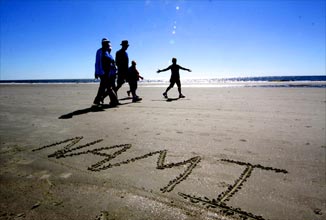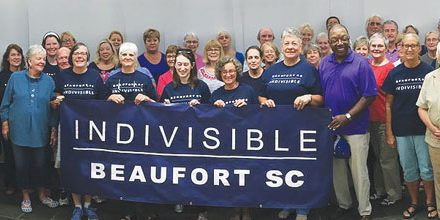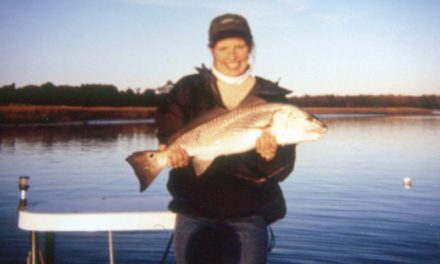I Don’t Know What I Am
I’ve never done this…  committed my feelings to writing on anything and shared with anyone. But, the politics of today and my frustrations with same compel me to. I marvel at the patently false invective so regularly shared on Social Media under the guise of reasoned, fact-based thought. Does anyone fact-check before they “Share”?
committed my feelings to writing on anything and shared with anyone. But, the politics of today and my frustrations with same compel me to. I marvel at the patently false invective so regularly shared on Social Media under the guise of reasoned, fact-based thought. Does anyone fact-check before they “Share”?
When was it exactly that politics became a game of getting everything you want and nothing the other guy wants? When was it exactly that we became so polarized in our views that the typical bell curve plot of positions on so many issues began to look like a big letter “V”? When was it exactly that the color gray, middle ground and compromise ceased to exist?
My views have historically aligned with moderate to conservative principles. They are rooted in my upbringing, influenced by my education and shaped by my life experiences. Therefore, I have typically identified as a Republican. Nowadays, I don’t know what I am.
• I am a Roman Catholic and can’t imagine that God does not love all of his creations, including same-sex couples. What am I?
• I am dismayed by our inability to control our borders over an extended period of time but believe we must find a humane way of dealing with those here illegally. What am I?
• I am a supporter of the 2nd Amendment but I believe there must be something we can do to lessen the incidence and severity of gun violence. What am I?
• I supported the Bush administration in their response to 9/11 but see now, in retrospect, that it was short-sighted, poorly planned and executed. What am I?
• I can’t imagine how one can view the global consensus of environmental scientists as a conspiracy against anything or anyone and believe we better get focused on life after fossil fuels. What am I?
• I am a capitalist and free-market advocate, viewing hard work, risk taking and personal initiative as important values but cannot believe that all people who need help do not deserve it. What am I
• I don’t believe Iran, Russia, North Korea or China can be trusted but I think we should maintain a direct dialogue with each of them. What am I?
• I believe our standing in the world has changed, and not for the better. What am I?
• I believe government entities at all levels would benefit from implementing Lean to eliminate waste and non value add activities. What am I?
• I believe our tax code and its attendant support mechanisms promotes suboptimal behavior and should be overhauled. What am I?
• I believe more public and private resources should be focused on helping children become better students, healthier kids and strong characters and citizens. What am I?
• I believe a criminal justice system that incarcerates more people per capita than any other civilized nation has not worked. What am I?
• I believe our system of financing campaigns allows undue influence from a few very wealthy people. What am I?
• I believe we have the scientific wherewithal on this planet to end insidious diseases like cancer but cannot agree on a viable system of risk/reward. What am I?
• I am concerned that, even after Obamacare, we have 29 million Americans without health insurance. What am I?
• I believe there should be equal pay for equal work. What am I?
• I believe in democracy as the only practical system of government but don’t believe it should be shoved down the throats of non-receptive people. What am I?
• I believe the family unit is in decline and that decline has led to many of today’s societal ills. What am I?
• I believe we must stop blaming others and instead accept personal responsibility for our fate. What am I?
Must political ideologies promote so much confrontation and non-acceptance of other’s views? Must opposing views always be shouted down? Can we learn nothing from listening to others? When did “meeting in the middle” cease to exist as a productive political destination?
I don’t know what I am.
Michael Gonzalez
Lady’s Island
On Smart Growth & Planting Acorns
Recently, an open letter from Gordon Fritz to Mayor Billy Keyserling appeared on the front page of the Island News. I would like to respond to that letter. As a neighbor to the Lady’s Island residents recently persuaded to clear cut their land by a Georgia logging company, I see the ramifications of that industry’s short-sighted environmental practices from my doorstep on a daily basis: a scarred and desolate landscape where only this spring a mature forest stood, slightly more overgrown today than it was six months ago when logging trucks pulled away without doing a bit of clean up, stumping, or re-planting. What remains resembles Joplin, Missouri after the devastating tornado outbreak of 2011. Fifteen-foot-tall piles of twisted and rotting refuse, an open field littered with hacked stumps and rejected trees that lie abandoned where they fell. Rainwater once essential to the trees now collects in ruts left by the heavy machinery, turning low spots into swampy, mosquito infested bogs. The adjoining stretch of rural road, once covered by a cathedral canopy of branches and alive with the chirps and coos of wild things, is silent of natural sounds while the reverberations of traffic and encroaching ‘civilization’ grow louder and more invasive now that the natural noise filter is gone. While we residents have lost privacy and the lush and verdant atmosphere that once prevailed here, the family of owls that I have watched and wondered at for two years and countless other creatures have lost even more: their habitat.
I understand that change and development are essential and inevitable, and that my neighbor’s decision to harvest their lumber was need- based and that they were completely within their rights; but I feel that the only real winner in this situation was the logging company, who timbered the land in an irresponsible manner with only their profit margin in mind, and through loopholes in the system exempted themselves of any clean up responsibility. As to other current development projects Mr. Fritz’s mentions, his characterization of the abomination that is the Oyster Bluff site as a “huge scar” is spot on- I cannot even begin to imagine what that development will look like without one single mature tree. What does it say about our value system as a maritime forest community when one of the biggest “flaws” of the old Publix shopping center was that the parking lot was inconvenient: awkward because the mature live oaks were rightfully considered at a premium over a few more parking spaces and wider lanes? How ironic, and sad, that the very same trees are in danger again, for yet another shopping center. And don’t get me started about the new Wal-Mart.
Last Sunday’s New York Times Magazine Travel Issue listed Beaufort as one of its top 52 places to visit in 2016. In the world. What an honor be included in such a prestigious grouping! But think about it: people are not coming here for our fast paced nightlife, and while we have wonderful eateries and galleries, we know that’s not why we made the Times’ impressive list. People visit to experience the lowcrounty of South Carolina, and all that it entails: a culture synonymous with our unique natural maritime habitat. We need to push for legislation that insures that change, whether it is harvesting our natural resources or developing shopping centers and housing developments, is done in a manner that’s in sync with the fragile natural beauty and character that make our little slice of the south so desirable.
How serendipitous that right after I started this letter, another neighbor, ninety-two years old, gave me 25 live oak acorns that he has sprouted: our idea is to start them as house plants until they outgrow us and are strong enough to have a real chance of it outdoors. My neighbor asked that I send some to my eighty-six year old father, who, when we once talked of a possible hurricane, said of the massive 250 plus year-old oak in my yard “ Don’t worry about the house, you can rebuild a house. But you could never rebuild that tree.”
My neighbor’s gift reminded me literally and figuratively of a Greek proverb I once heard: “A society grows great when old men plant trees whose shade they know they shall never sit in.” Take it as a metaphor for altruism, or interpret it in a civic sense that societies prosper when current leaders adopt long-term policies that consider the well being of future generations. Of course, the irony is not lost on me that we already have these trees, and we’re cutting them down.
Let us as a community get behind Mr. Fritz’s suggestion that we insist, as soon as possible, on smart growth that recognizes local standards and values. Meanwhile, I have some acorns to plant.
Susanna Glattly
Lady’s Island






